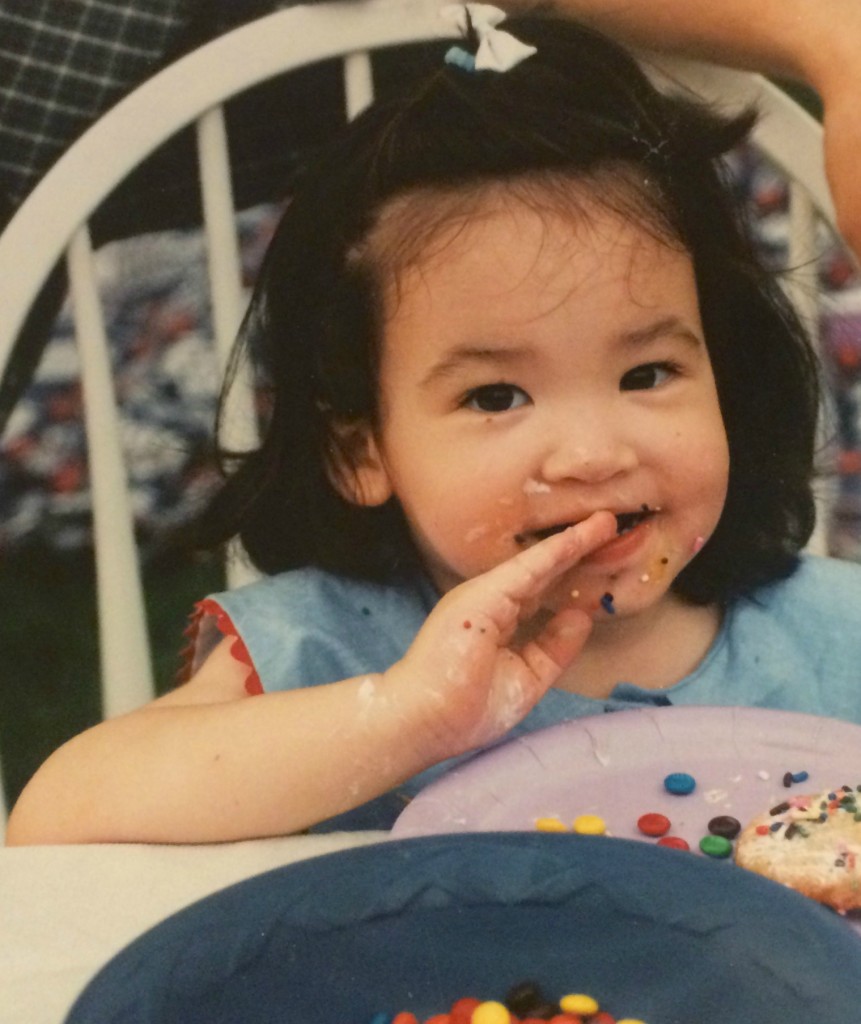Blind Spots
One of our favorite family stories involves Dunkin’ Donuts and a broken window.
Emily was four, Hannah was two and Steve was bringing both of them to cheer for me during a race. To the girls’ delight, Steve stopped at Dunkin’ Donuts where they each chose their favorite frosted doughnut. As Steve backed up the car to head to the race, he backed right into the Dunkin’ Donuts sign that was hidden from his view. The back window of the Jeep shattered, jolting Steve to a stop. Emily screamed at the top of her lungs, terrified of the loud crash and broken glass. As the sounds echoed inside the car, Hannah, unfazed said, “Can I have my chocolate doughnut please?”
We all love when Steve retells this story, laughing together as we think about Hannah’s complete focus on her doughnut, oblivious to anything external, including glass smashing all around her.
It is somewhat cute when the oblivious person is a two year old excited about her doughnut, but what about when we are adults? What if we are so focused on what we want that we lose sight of all that is happening around us?
Steve thought he was safely backing out of the parking lot, but was unable to see the huge pole that led to the demise of our back window. The other day, as we remembered this story, Steve said, “Correction! I saw the pole; I just didn’t see the metal electrical box attached to the pole.”
My eyes narrowed and I smiled mischievously, “Um, I’ve seen that pole and I am just not sure how you could miss that electrical box.”
Steve shrugged and said, “I guess it was in my blind spot.”
Like my confident observation of the pole, it is easy for me to see where other people might miss areas in their lives that need to change, but I know there are blind spots in my own life that I fail to see.
In college, I became friends with a girl who was completely different from me. We lived in the same dorm, and she often teased me about my Laura Ashley, preppy wardrobe which I countered by quickly pointing to her tie-dyed wall coverings and burning incense. I enjoyed many late nights of conversation with her and her roommate. After weeks of getting to know each other, this friend confessed that earlier in the year, she couldn’t stand me.
My jaw dropped and I laughed, “What are you talking about?”
She said, “You used to walk by me and not even acknowledge me.”
I was appalled and said, “That is SO not true. I say hi to everyone.”
She said, “Once in the dining room, I was eating with one of your friends and you came up, sat down with your back towards me, talked to your friend, never acknowledged me and then went on your merry way.”
I was indignant. “That never happened. I wouldn’t do that.”
She glanced at her roommate who nodded and said, “I was there. It’s true.”
I felt my cheeks blush and shifted in my seat, embarrassed. I had no memory of ever even seeing her in the dining hall. I prided myself on knowing so many people, saying their names on my way to class, deep down thinking that people must have thought I was one of the friendliest people they knew. And yet I realized in that moment, that maybe in my arrogance, I missed a lot around me because I was so focused on how great I was.
I sat there in silence and looked my friend. Finally, I quietly said, “I am really sorry. I had no idea. No wonder you thought I was jerk.”
She shrugged and said, “It’s ok. I am just glad we got to know each other anyway. You’re totally different than I thought. I mean, except for the preppy part.”
I shoved her a little and we laughed, but it was one of those moments when I realized that my perception of myself may not always be as true as I think it is. And in spite of really wanting to see others well, I know there have been (and will be) many more times in my life when my blind spots have kept me from connecting with and loving others well.
The best gift my college friend gave me was a willingness to be honest and to help me see some things about myself that I neglected to see on my own. She didn’t share her thoughts with me until we established a closer friendship, and she knew she could trust me enough to share them. Mutual trust and love are crucial because the process can be painful, uncomfortable, and vulnerable.
In order to change, we need people in our lives who love us enough to share truth with us. I am not talking about the person who thrives on criticism or can’t wait to point out yet another weakness he or she sees, but a person who loves me enough to help me see areas that could use some work. Am I willing to invite that in my life? To really own the places in me that need to change?
In order to grow, I have to be.

